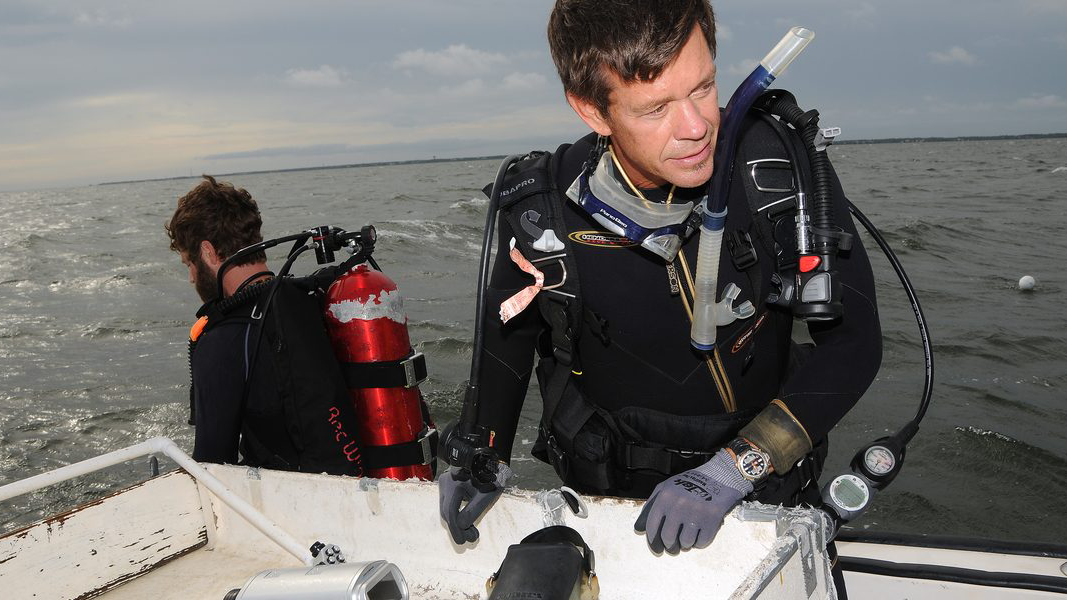Marine Ecology and Conservation
The Marine Ecology and Conservation Program in the Department of Marine, Earth and Atmospheric Sciences, College of Sciences, is dedicated to testing and applying concepts in ecology and conservation to effective management and restoration of coastal and marine fisheries and ecosystems. Concepts range from landscape ecological principles to predator-prey theory to the emerging field of soundscape ecology.
Common Research Questions
- What are the best locations to establish marine protected areas or restore essential fisheries habitat?
- What is the role of underwater soundscapes in larval behavior and settlement?
- What are the ecological effects of noise pollution?
- What are the sources of larvae that replenish populations that are fished or protected from fishing?
- What are the ecosystem functions and services provided by certain habitats, and what is the economic value of such services?

Research uses a combination of field observations, field and laboratory experiments, computer simulation modeling, and geochemical tracer and molecular tools to test assumptions and develop a mechanistic understanding of animal behavior, population connectivity and ecosystem dynamics.
Study systems range from tropical to temperate, and shallow estuarine to deep-sea. Study species range from marine and freshwater fish to macro-invertebrates, especially crabs, lobster and bivalves.
Research spans the disciplines of biology, ecology, physics, economics, mathematics, statistics, and chemistry. Graduates become future leaders in academia, research and management.
Some research topics include:
- Applying metapopulation and source/sink concepts to study the efficacy of oyster restoration.
- Quantifying estuarine soundscapes and the role of sound on the behavior and settlement of marine larvae.
- Assessing the efficacy of “soundscape diversity” as an indicator of ecosystem health.
- Evaluating the importance of larval behavior and hydrodynamics to population connectivity in shallow estuaries, coastal shelf and deep-seas seep systems.
- Quantifying ecosystem functions and services provided by estuarine habitats.
The Marine Ecology and Conservation Program” is based in NC State’s Department of Marine, Earth & Atmospheric Sciences within the College of Physical & Mathematical Sciences. The program is led by Dr. David Eggleston, Professor of Marine Science.
